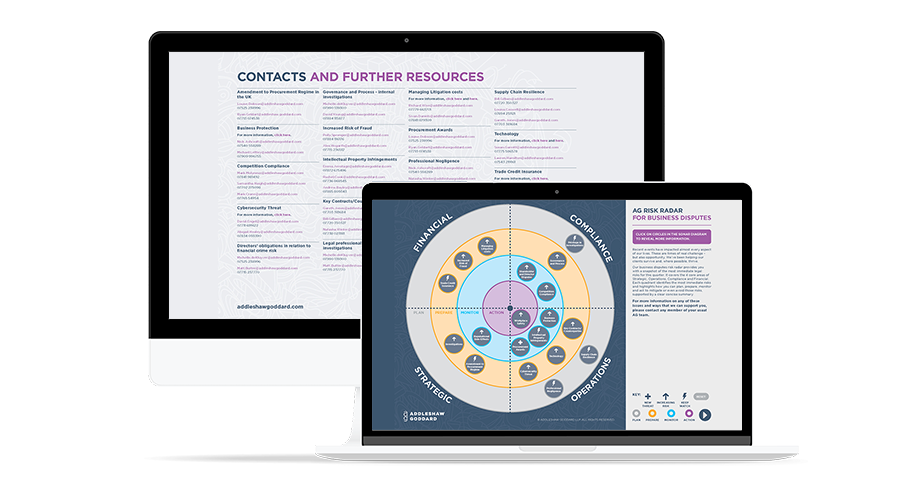On 8 November 2019, the English Court of Appeal handed down judgment in favour of GlaxoSmithKline (GSK) on the permitted scope of the long-running Seroxat litigation.
Sandra Bailey & Others v GlaxoSmithKline UK Limited
This case relates to an action for damages, brought by a group of Claimants, arising from their use of a prescription-only antidepressant drug, Seroxat. Seroxat is alleged to be defective within the meaning of section 3 of the Consumer Protection Act 1987 (CPA) because of a single aspect of its adverse event profile, namely symptoms upon discontinuation. The Claimants allege that Seroxat is "worst in class" for discontinuation symptoms when compared with other drugs in the comparator class.
Given the unusual history of this matter, this litigation formed the subject of a series of hearings before case management judge, Foskett J, and later before trial judge, Lambert J. A trial of lead cases was listed for 10 to 12 weeks, starting on 29 April 2019.
An issue arose during the course of the Claimants' Opening concerning the scope of the Claimants' pleaded case, which required Lambert J to give an urgent ruling. The Claimants advanced that, in determining whether the safety of Seroxat is such as persons generally are entitled to expect under section 3 of the CPA, the Court should infer or assume that Seroxat has no relative benefits when compared with other drugs in the appropriate comparator class. The Claimants submitted that the Court should assume "a level playing field" of risks and benefits as between the drugs in the comparator class, save for the single characteristic which is said to constitute the "defect".
The Defendant reminded the Court that the case had been carefully case managed to trial and that there had been a series of Court rulings in which the Claimants' case had been defined. The Defendant noted that, as confirmed in those prior rulings, the Claimants' case was that Seroxat was defective because it was worst in class for discontinuation symptoms. In previous case management hearings and pre-trial reviews it had been determined that the relative benefits of Seroxat, whether in comparison with other SSRIs or otherwise, did not form part of the pleaded case. It was not now open to the Claimants to shift the goal posts and seek to expand their pleaded case on defect. The Defendant had maintained from the outset that the Claimants' pleaded case on defect, relating to a single adverse event, was the wrong approach and that a holistic approach should be taken in determining the safety of a prescription medicine.
Lambert J gave a ruling on 9 May 2019 as to the scope of the Claimants' case on defect: [2019] EWHC 1167 (QB). In her decision, Lambert J held that the Claimants' case was limited to the "worst in class" case, in other words the allegation that Seroxat is "worst in class" for discontinuation symptoms when compared with other drugs in the comparator class. It could not be extended to the relative risks and benefits of Seroxat and its comparators more generally ("the risks/benefits case").
The Claimants appealed against the ruling. The ten week trial was adjourned pending determination of the appeal.
The Court of Appeal (The Senior President of Tribunals, Hamblen LJ and Jackson LJ) unanimously dismissed the Claimants' appeal. The Court:
- confirmed that the nature of the Claimants’ case on defect had been clearly and conclusively defined in previous court rulings, both by Foskett J and by Lambert J;
- noted that, in a judgment of 3 March 2017, Foskett J permitted the Claimants to proceed on the basis of the “worst in class" case only, and made it clear that it was too late for the Claimants to advance a risk/benefit case;
- held that the Claimants could have appealed that decision and did not do so;
- held that Lambert J had confirmed the position stated by Foskett J in February 2019, in a decision which the Claimants also could have appealed but did not.
In dismissing the appeal the Court also held that:
- the approach adopted by the Claimants at trial involved advancing a risk/benefit case in circumstances where the trial judge had expressly determined that it would not feature;
- this was plainly impermissible; and
- this was done far too late and with obvious unfairness to GSK, and in a manner that would undermine good case management with no possible basis for doing so.
Counsel for GSK: Charles Gibson QC, Malcolm Sheehan QC, Adam Heppinstall, James Williams (Henderson Chambers)
AG team: Louisa Caswell, Mark Chesher, Sivan Daniels, Cécile Burgess, Gabriella Coombe, Megan Goodman



